Filter by
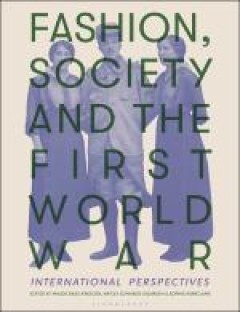
Fashion, society and the first world war
The historiography of the Great War has been significantly renewed in recent years, yet, despite its crucial social, economic, and cultural importance, the role that fashion played in shaping wartime experiences and economies has not yet been addressed. This collection fills this gap in the literature by examining the impact the Great War had on fashion, its industry, and civilians in a transna…
- Edition
- -
- ISBN/ISSN
- 9781350119888
- Collation
- xxii, 330p.: ill.
- Series Title
- -
- Call Number
- 746.920904 FAS f
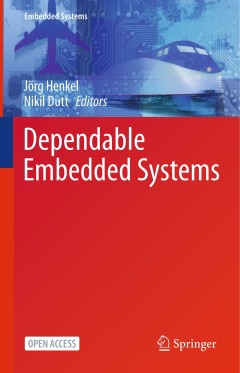
Dependable embedded systems
This Open Access book introduces readers to many new techniques for enhancing and optimizing reliability in embedded systems, which have emerged particularly within the last five years. This book introduces the most prominent reliability concerns from today’s points of view and roughly recapitulates the progress in the community so far. Unlike other books that focus on a single abstraction le…
- Edition
- -
- ISBN/ISSN
- 9783030520175
- Collation
- xiii, 608p. : ill.
- Series Title
- -
- Call Number
- 621.3815 DEP d
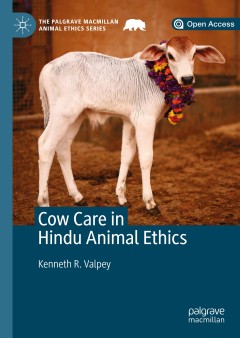
Cow care in Hindu animal ethics
This open access book provides both a broad perspective and a focused examination of cow care as a subject of widespread ethical concern in India, and increasingly in other parts of the world. In the face of what has persisted as a highly charged political issue over cow protection in India, intellectual space must be made to bring the wealth of Indian traditional ethical discourse to bear on t…
- Edition
- -
- ISBN/ISSN
- 9783030284084
- Collation
- xxx, 269p. : ill.
- Series Title
- -
- Call Number
- 179.3 VAL c

Science and technology governance and ethics : a global perspective from Euro…
This book analyzes the possibilities for effective global governance of science in Europe, India and China. Authors from the three regions join forces to explore how ethical concerns over new technologies can be incorporated into global science and technology policies. The first chapter introduces the topic, offering a global perspective on embedding ethics in science and technology policy. Cha…
- Edition
- -
- ISBN/ISSN
- 9783319146935
- Collation
- viii, 173p. : ill.
- Series Title
- -
- Call Number
- 509 MIL s
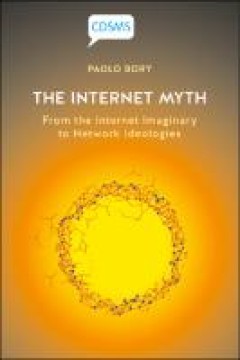
The internet myth: from the internet imaginary to network ideologies
‘The Internet is broken and Paolo Bory knows how we got here. In a powerful book based on original research, Bory carefully documents the myths, imaginaries, and ideologies that shaped the material and cultural history of the Internet. As important as this book is to understand our shattered digital world, it is essential for those who would fix it.’ — Vincent Mosco, author of The Smart C…
- Edition
- -
- ISBN/ISSN
- 9781912656752
- Collation
- xiii, 169p.: ill
- Series Title
- -
- Call Number
- 004.678 BOR i

Corporate ethics for turbulent markets: the market context of executive decis…
Corporate executives immersed in the turbulent markets of today face a world not of clear cut moral dilemmas such as right or wrong, or good or evil, but instead must confront large corporate grey areas of lesser good, lesser evil, less true, less unfair, and less unjust. Often these choices become almost indistinguishable. Corporate Ethics for Turbulent Markets: Executive Response to Market Ch…
- Edition
- First edition.
- ISBN/ISSN
- 9781787561915
- Collation
- viii, 320 pages ; 24 cm
- Series Title
- Corporate ethics for turbulent markets
- Call Number
- 174.4 MAS c
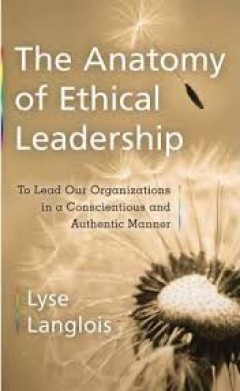
Anatomy of ethical leadership: to lead our organizations in a conscientious a…
Performance at all costs, productivity without regard to consequences, and a competitive work environment: these are the ethical factors discussed in The Anatomy of Ethical Leadership, which highlights issues in workplace culture while looking into a brighter future for labour ethics. Langlois maintains that an enhanced awareness of the process of ethical decision making in difficult situations…
- Edition
- -
- ISBN/ISSN
- 9781897425749
- Collation
- xv, 120 p. : ill. ; 23 cm.
- Series Title
- Labour across borders series
- Call Number
- 174.4 ANA a
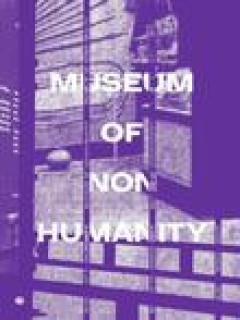
Museum of nonhumanity
Museum of Nonhumanity is the catalogue for a full-size touring museum that presents the history of the distinction between humans and animals, and the way that this artificial boundary has been used to oppress human and nonhuman beings over long historical periods. Throughout history, declaring a group to be nonhuman or subhuman has been an effective tool for justifying slavery, oppression, med…
- Edition
- 1st edition.
- ISBN/ISSN
- 9781950192120
- Collation
- 281p.:
- Series Title
- -
- Call Number
- B105.A55 GUS m

Professionalism in the information and communication technology industry
Professionalism is arguably more important in some occupations than in others. It is vital in some because of the life and death decisions that must be made, for example in medicine. In others the rapidly changing nature of the occupation makes efficient regulation difficult and so the professional behaviour of the practitioners is central to the good functioning of that occupation. The core id…
- Edition
- -
- ISBN/ISSN
- 9781922144447
- Collation
- vii, 372p. : ill.
- Series Title
- -
- Call Number
- 174.93034833 WEC p
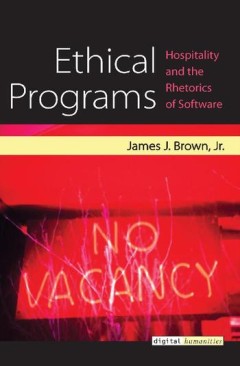
Ethical programs : hospitality and the rhetorics of software
Living in a networked world means never really getting to decide in any thoroughgoing way who or what enters your “space” (your laptop, your iPhone, your thermostat . . . your home). With this as a basic frame-of-reference, James J. Brown’s Ethical Programs examines and explores the rhetorical potential and problems of a hospitality ethos suited to a new era of hosts and guests. Brown rea…
- Edition
- -
- ISBN/ISSN
- 9780472072736
- Collation
- x, 217p. : ill.
- Series Title
- -
- Call Number
- 174.9005 BRO e
 Computer Science, Information & General Works
Computer Science, Information & General Works  Philosophy & Psychology
Philosophy & Psychology  Religion
Religion  Social Sciences
Social Sciences  Language
Language  Pure Science
Pure Science  Applied Sciences
Applied Sciences  Art & Recreation
Art & Recreation  Literature
Literature  History & Geography
History & Geography